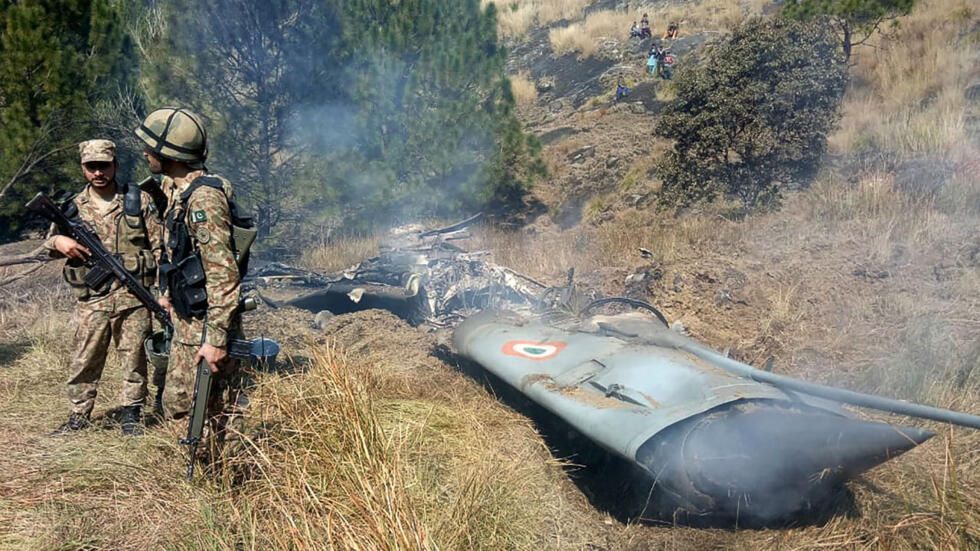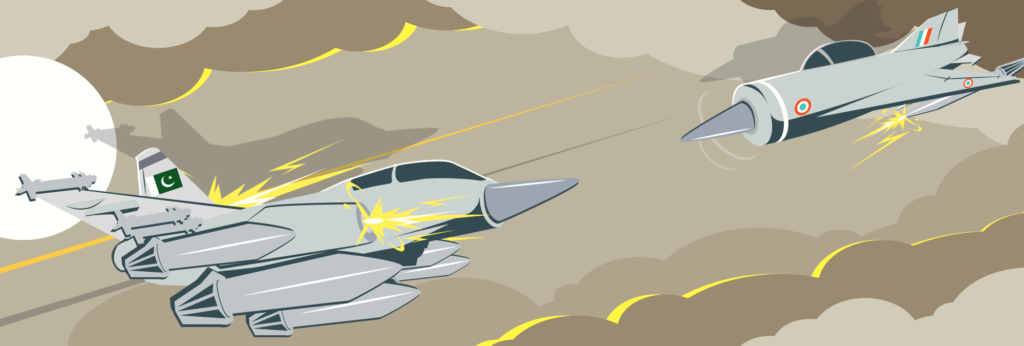
As the fifth anniversary of the Pulwama attack approaches, a doubt hangs heavy over the discourse being paddled by India. Amidst the media narratives, it’s crucial to take a step back and analyze the situation with critical, fact-based perspective. A deeper analysis reveals an intriguing narrative, one interwoven with long-standing tensions, political agendas, and frail state of peace in a volatile region.
On February 14, 2019, a terror attack occurred in Pulwama in Jammu and Kashmir by a suicide bomber resulting in the death of 40 security personnel. Following the attack, a sharp escalation occurred between India and Pakistan. India expressed its strong disapproval by summoning Pakistan’s highest diplomatic representative. Prime Minister Modi asserted that the security forces had been granted complete autonomy in crafting their response, stating, “They have been given full freedom to decide the place, time, intensity and nature of the retaliation against the enemy.”
He also claimed to avenge all tears. In response, then Director General of Pakistan’s Inter-Services Public Relations responded in a dignified manner while referring to reports that India was preparing for a war. “We do not wish to go to war. But please be assured, should you initiate any aggression, you shall never be able to surprise us. We shall, for sure, surprise you.”
The milieu was indeed simmering rather explosive. Approximately twelve days later, in the early hours of February 26th, the Indian Air Force jets violated Pakistani airspace and engaged in a limited air strike targeting several pine trees and a single crow in Balakot, which India ostensibly alleged as a terrorist camp. On February 27, 2019, Pakistan responded swiftly by retaliating in a top notch manner. The airstrikes were part of the Pakistan Air Force military operation codenamed ‘Operation Swift Retort’.
Pakistan Air Force counter-strike resulted in the downing of two Indian fighter jets and the capture of Indian pilot.
Despite having a numerically large military, Indian Air Force was visibly shaken and panicked. It confronted operational challenges, evidenced by fraticidal crash of an Indian Mi-17 helicopter, killing six Indian Air Force personnel, including a senior officer.
Indian Air Force Chief, Rakesh Kumar Bhadauria, admitted that the chopper crash was a “big mistake” on part of the IAF. Contrarily, Pakistan’s Air Force showcased professional competence and strategic prudence, deliberately and timely targeting military objectives without escalating the confrontation.

Despite the heightened tensions and domestic pressure, Pakistan treated the captured pilot by serving tea and released Wing Commander Abhinandan Varthaman in a conciliatory gesture. This act of de-escalation, lauded by international observers, United Nations, Saudi Arabia, and China, stood in stark contrast to India’s continued push for military solutions. Indian high headedness led it to an embarrassing situation.
Pulwama incident, when viewed through this lens, brings to fore certain truths. First, the BJP Government, known for its Hindutva ideology and nationalist fervor, readily capitalized on this showdown.
Critics point to a historical pattern, particularly amplified by the BJP Government, of incidents preceding major elections, where it fueled a sense of nationalism while solidifying political positions with a strong “tough on terror” standpoint.
Second, Indian irresponsible act of war upped the ante between two nuclear armed states. India justified the Balakot Operation as a “preemptive” measure against a terror camp, which was actually a school. But in reality, it was an attempt to sabotage regional peace. This raises uncomfortable questions about the weaponization of such tragedies and military tactics for political gains.
The UN Charter allows for self-defense, but only against an “armed attack” and when no other reasonable course of action exists. It is therefore established that the argument for imminent threat to Indian security remains unconvincing.
Third, the Indian Government refused to share evidence with Pakistan or international investigators, prompting accusations of a “convenient narrative” coinciding with then scheduled elections in India. Pakistan, on the other hand, extended full cooperation to international investigators and they reached the conclusion that India’s claims were indeed bogus after the site visit on Pakistani territory.
Recently, former India’s High Commissioner to Pakistan, Ajay Bisaria, has also accepted that there is no proof of India’s success of the Balakot strike.
The BJP Government in India has consistently been involved in supporting electoral campaigns through hate-mongering and politically motivated propaganda against Muslims, particularly in relation to Pakistan. A recent opinion article in The Times of India by Sachin Parashar, summarizing an ex Indian High Commissioner Ajay Bisaria’s book ‘Anger Management,’ glorifies Prime Minister Narendra Modi’s actions post-Pulwama.

The article, titled “Qatal Ki Raat,” aims to promote specific excerpts from the book for BJP’s consumption in the wake of Lok Sabha Elections. However, the book’s content, labeled as “Operation Swift Retort,” diverges from ground facts in February 2019. Despite evidence of India’s setbacks, the narrative of triumph has been met with skepticism, especially considering two down aircrafts and a prematurely retired “war hero.”
Pakistan’s transparency during the crisis, exemplified by its proactive information sharing, contradicts India’s historically aggressive tactics. By countering Indian propaganda with factual updates, Pakistan doubtlessly dominated the perception domain and prevented India from capitalizing on the situation for political gains.
Pakistan proposes a balanced approach to address India’s aggressive actions and calls for accountability of incidents like Pulwama and Balakot. Maintaining vigilance against any Indian manipulation however remains crucial for safeguarding regional peace.



















Leave a Reply